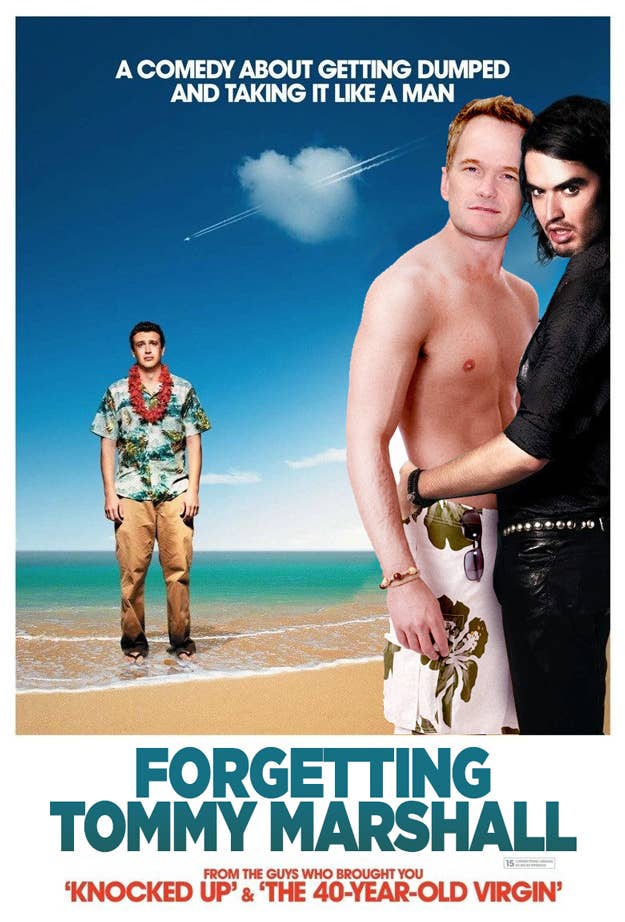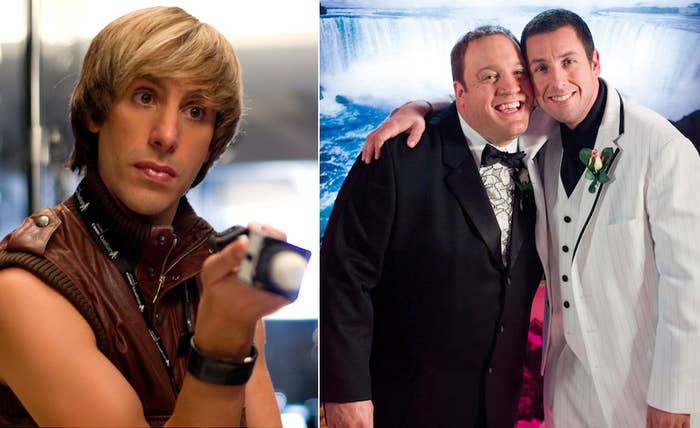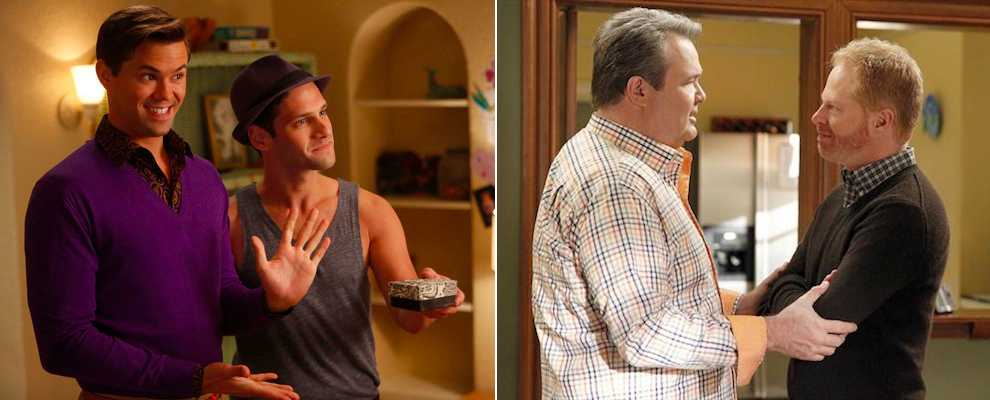
Imagine for a moment watching a trailer for a movie called Forgetting Tommy Marshall, about Peter, an adorable film composer (Jason Segel) who is unceremoniously dumped by his sitcom star boyfriend Tommy Marshall (Neil Patrick Harris). Peter escapes to a palatial resort in Hawaii, only to discover Tommy is also there, shacking up with his newly out-and-proud rock star boyfriend (Russell Brand). When the foxy hotel concierge (Matt Bomer) discovers Peter's sad fate, he books Peter into a fabulous suite, and then hooks up with him later that night. Hilarity, as is its wont, ensues.
You would totally go to see that movie, wouldn't you?
OK, obviously some people wouldn't, but in 2013, it is just as obvious that a substantial number of people, gay and straight, would totally go to see that movie. One only needs to look at the expansive number of gay characters on television to know that the old-as-Moses argument that there isn't a national, mainstream audience for gay-centric stories has been proven false several times over. There's Mitch and Cam on Modern Family, Max on Happy Endings, Callie and Arizona on Grey's Anatomy, Blaine, Kurt, Santana, and Brittany on Glee, David and Bryan on The New Normal, Kalinda on The Good Wife, Cyrus and James on Scandal, Angela on Bones, Anne on Go On, Emily on Pretty Little Liars, Thomas on Downton Abbey, Ian on Shameless, Officer Cooper on Southland, the Knight of Flowers on Game of Thrones, and everyone on True Blood.
The movies are a different story. Since Brokeback Mountain swept the world in 2005 to the tune of a $178 million global box office, the highest grossing gay-themed film in the past eight years is 2007's Adam Sandler comedy I Now Pronounce You Chuck and Larry. If we're talking about movies where the lead character is actually gay, then the only gay-themed major studio release since 2005 was 2009's Sacha Baron Cohen comedy Bruno. This is madness. This is Hollywood leaving money on the table, which they tend not to do. And yet this is also depressingly predictable.

It is true that there are several inescapable differences between gay characters appearing on a TV show and gay characters headlining a feature film. The former rarely have to carry the show by themselves, and the plot of each discrete TV episode doesn't need to be anything more involved than finding a good babysitter — not so with a movie. (There's also the fact that, despite all the great progress over the last few years, same-sex sexuality remains a touchy subject even for gay-friendly shows. Mitch and Cam are the best, but do they, like, ever have sex?) TV is also all about getting an audience to say "I relate to that!" Movies, especially studio romantic comedies, are all about getting an audience to say "I aspire to that!" (Think of Ryan Reynolds' insanely gorgeous family home in The Proposal, all those fabulous kitchens in Nancy Meyers movies, or Ryan Reynolds' insanely gorgeous abs in The Proposal.) For a certain generation — a generation still running every studio in Hollywood — the notion of a "gay lifestyle" being aspirational to the average moviegoer is too far of a cognitive leap to make.
And there are the different economics of TV vs. film. Television execs often aim their programming to hit specific niche audiences, especially as ratings have splintered from the '80s and '90s heyday of 35-million-viewer shows. Movie execs, by contrast, still train their "product" toward the broadest possible audience, forever chasing the "four quadrant" golden goose. Even more pressing for Hollywood suits: The $5 million to $20 million broadcast and cable networks spend promoting each of their shows comes nowhere near the $30 million to $60 million money pits film studios regularly burn trying to get your ass into the multiplex. The cost, and therefore the risk, of putting a major gay character on a movie screen is much greater than putting one on your TV.
It's that kind of dismal math, mixed with a lingering belief that Middle America still does not want to shell out at the box office for a gay lead, that has kept gay characters from taking center stage as romantic leads in major studio films. African-American and Hispanic characters have faced a similar fate for decades. And it's an enormous shame. Hollywood has been in a panic to get 18- to 34-year-olds to leave their iPads and Xboxes at home and make moviegoing a part of their regular routines, but they've either overlooked or outright ignored the massive demographic shifts that have — to pick one example at random — elected a black male president, twice. There is an entire generation of voracious media consumers that not only doesn't care if someone is gay, they think it is pretty weird if someone else does care.
I cannot stress this enough. The country has changed. Straight. People. Watch. Gay. Stories. All. The. Time.

Look at it this way: NBC's incredibly homosexually inclined sitcom The New Normal has seen its rating slump to an anemic 3.27 million viewers. But that still means there are 3.27 million real people out there willing to watch a show with gay characters in it. If that same tiny number went to see Forgetting Tommy Marshall on opening weekend, it would bank roughly $26 million — a solid hit. If a third of Modern Family's audience this week bought a movie ticket, they would bring in just over $42 million. That's better than 21 Jump Street, The Campaign, and Magic Mike's opening weekends.
It's already obvious that the marketplace has room for high-quality, emotionally involving, gay-themed indie films like Milk and The Kids Are All Right. But even as the world keeps spinning forward into progress, people also still go to the movies to see something that they've never quite seen before wrapped in a package of something that is comfortingly familiar. (Skyfall: It's James Bond, but different! And kinda gay!) And what could fit that bill better than a madcap comedy about an uptight Canadian executive (Sandra Bullock) who avoids deportation by blackmailing her put-upon assistant (Sarah Paulson) into a sham marriage?

